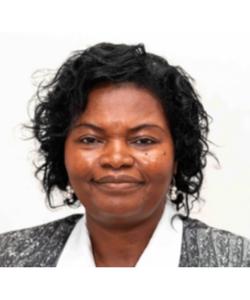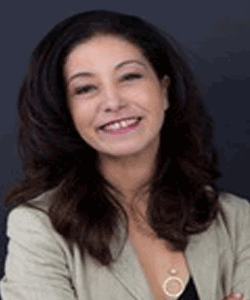
|
Fadila BOUGHANEMI
Fadila Boughanemi works for DG Research and Innovation, where she is Deputy Head of Unit for International Cooperation with Asia, Africa, Middle East and External relations. She is responsible for promoting research and innovation cooperation with international partners in order to: strengthen the EU’s scientific excellence and attractiveness; foster its industrial competitiveness; tackle global societal challenges; and support the EU’s external policies including trade, development and enlargement. Fadila joined the European Commission in 1996, and serves with the international cooperation programme since 2004. Beforehand, she served with the socio-economic research programme of DG Research & Innovation where she was in charge of research on social exclusion and social integration. Fadila obtained two Master Degrees, in Philosophy and in English, from Aix-Marseille University, and a Ph.D. in Political Science from the Institute of Political Science of Aix-en-Provence, France. |
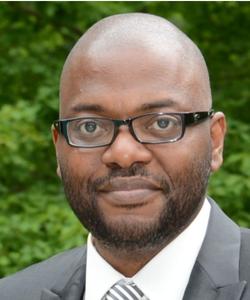
|
Yanne K. CHEMBO Yanne K. Chembo received a Ph.D. degree in Nonlinear Dynamics from the University of Yaoundé I, Cameroon, in 2005, and a Ph.D. degree in Photonics from the University of the Balearic Islands, Palma de Mallorca, Spain, in 2006. After a first postdoctoral stay with the FEMTO-ST Institute (Besancon, France) and a second one with NASA Jet Propulsion Laboratory (Pasadena, USA), he joined the Centre National de la Recherche Scientifique (CNRS) in 2010 as a Research Scientist, and later on, Research Director. In 2011, he was awarded an ERC Starting Grant for his project NEXTPHASE (NEXT generation of microwave PHotonic systems for AeroSpace Engineering). In 2013, he was also awarded an ERC Proof-of-Concept Grant for his project VERSYT (VERsatile, ultra-stable, multi-coherent and compact microwave photonics SYsTems). Since 2019, he is affiliated with the Department of Electrical and Computer Engineering from the University of Maryland, USA.
|
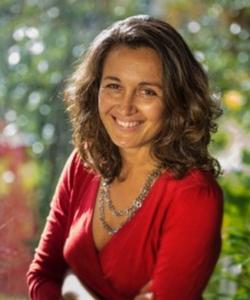
|
Leyla DAKHLI Leyla Dakhli is a full-time historian in the French Center for National Research (CNRS), presently settled in the Marc Bloch Center in Berlin. Her work deals with the study of Arab intellectuals and social history of the South Mediterranean region, with a particular focus on the history of women and the question of exiled intellectuals and activists. She is the Principal Investigator of the ERC-founded program DREAM (Drafting and Enacting the revolution in the Arab Mediterranean). She is a member of the editorial committee of the International Review of Social History (Amsterdam) and Le Mouvement social (Paris), and of the Scientific Committee of the MuCem (Musée des Civilisations de l’Europe et de la Méditerranée, Marseilles). |
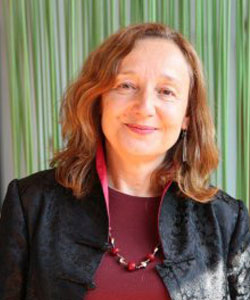 |
Angela LIBERATORE
Angela Liberatore is Head of the Scientific Department at the European Research Council, which manages the evaluations and monitoring of projects submitted to ERC in all scientific domains and undertakes ex-ante and ex-post analyses of ERC funded research. |
|
|
Catherine NGILA Prof Jane Catherine Ngila is currently the Acting Executive Director of The African Academy of Sciences (AAS) since mid-July 2020. She provides leadership and strategic direction of The AAS’s programmatic and operational management whose vision is to transforms lives in Africa through science. The AAS’s tripartite mandate; (a) recognizing excellence through the Academy’s highly prestigious Fellowship, Affiliates and Award schemes; (b) Advisory and think tank functions for shaping Africa’s Science, Technology and Innovation (STI) strategies and policies and; (c) implementing key STI programmes addressing Africa’s developmental challenges. Prof Ngila is a former Deputy Vice Chancellor of Riara University for Academic and Student Affairs (DVC-AA). She is also a former Deputy Director of the Institute of Oil and Gas (MIOG) under Kenya Pipeline Company, in charge of Training, Academic Programmes and Linkages. She is a Visiting Professor at University of Johannesburg, University of Nairobi, and Masinde Muliro University of Science and Technology. She has also worked at University of Johannesburg, University of KwaZulu Natal, University of Botswana and Kenyatta University. Prof Ngila is a Fellow of the World Academy of Sciences; Fellow of the Africa Academy of Sciences (AAS); Member of Academy of Science of South Africa (ASSAf); Member of the AAS mentorship programmes; was Co-Chair for the 2021 Commonwealth Science Conference 22-26 Feb; Mentor for Mastercard Foundation; She is a member of various chemical societies and professional organizations. Prof Ngila’s research work is on Analytical/ Environmental Chemistry and focuses on water quality/pollution monitoring; modelling methods of water treatment based on nanotechnology; development of analytical methodologies for detecting chemical substances in water. |
 |
Jennifer ROBINSON Jennifer Robinson is Professor of Human Geography at University College London. Her book, Ordinary Cities (Routledge, 2006) developed a post-colonial critique of urban studies. Her new book, Comparative Urbanism: Tactics for Global Urban Studies (Wiley-Blackwell, 2022), proposes new methodological foundations for urban studies. Earlier empirical research explored the history of apartheid cities, and the politics of post-apartheid city-visioning. Current empirical projects focus on the politics of large-scale urban developments (London, Johannesburg, Shanghai) and the transnational circuits shaping African urbanisation (Accra, Dar es Salaam, Lilongwe). |

